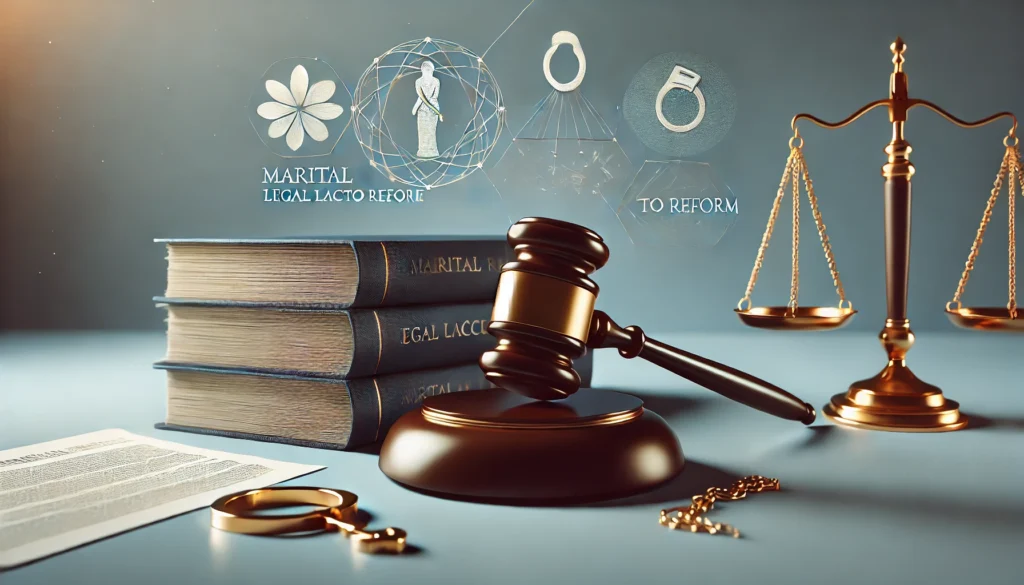Published on: 29th October 2025
Authored by: Shravani vishnu
Reva University
The landmark judgment in Shayara Bano v. Union of India (2017) declared instant triple talaq (talaq-e-biddat) unconstitutional, striking a balance between Muslim women’s fundamental rights and religious freedom under Article 25 of the Constitution.
Bench Composition
Constitution Bench of five judges:
- Justice J.S. Khehar (CJI)
- Justice Kurian Joseph
- Justice Rohinton F. Nariman
- Justice U.U. Lalit
- Justice S. Abdul Nazeer
Date of Judgment
22nd August 2017
Procedural History (How the Case Reached the Current Court)
Shayara Bano filed a writ petition under Article 32 of the Constitution challenging talaq-e-biddat, polygamy, and nikah halala as violative of fundamental rights. Several petitions by other Muslim women were clubbed together. Due to the constitutional importance of the issue, the matter was referred to a five-judge Constitution Bench for authoritative pronouncement.
Facts of the Case
The ‘nikah’ (marriage) between the petitioner (Shayara Bano) and the petitioner’s husband (Rizwan Ahmad) was solemnized on 11th April 2001, as per Shariat.
They have two children, a son and a daughter.
On 10th October 2015 Rizwan Ahmad divorced his wife through the practice of talaq-e-biddat or triple talaq or instant talaq (in the presence of two witnesses he said that I gave ‘talak, talak, talak’).
Petitioner filed a writ petition at the Supreme Court (SC) in February 2016 challenging the constitutional validity of talaq-e-biddat (triple talaq). Shayara Bano was divorced by her husband through instant triple talaq (talaq-e-biddat), a practice that allows a Muslim husband to dissolve the marriage instantly by pronouncing “talaq” three times. She contended that this unilateral, irrevocable divorce violated her rights to equality, non-discrimination, and dignity under Articles 14, 15, and 21. The case became a focal point for examining gender justice, personal law reform, and the constitutional validity of religious practices.
The contention of the petitioner was that this type of divorce (talaq) is violative of fundamental rights and further argued that these practices were not protected under Articles 25(1), 26(b) and 29 of the Constitution.
Issues Framed
- Whether talaq-e-biddat is an essential religious practice under Islam and protected under Article 25.
- Whether talaq-e-biddat violates Articles 14, 15, and 21 of the Constitution.
- Whether personal laws are subject to judicial review under Part III of the Constitution.
Arguments of Both Parties
Petitioner (Shayara Bano):
- Talaq-e-biddat is arbitrary and discriminatory, violating Articles 14 and 21.
- It is not an essential practice under Islam, as it is disapproved (biddat) and several Muslim countries have abolished it.
- Article 13 applies to personal laws, and unconstitutional personal laws should be struck down.
Respondents (All India Muslim Personal Law Board):
- Personal law is protected under Article 25 (freedom of religion) and beyond judicial interference.
- Talaq-e-biddat has been recognized historically, and reform must come from the legislature, not the judiciary.
- Courts cannot rewrite religious texts or practices.
Legal Framework (Explanation of the Law)
The Court considered Articles 13, 14, 15, 21, and 25 of the Constitution. It also examined Quranic verses on divorce, Islamic jurisprudence, and precedents such as Shamim Ara v. State of U.P. (2002), which held that triple talaq must be reasonable and preceded by reconciliation. The Court discussed constitutional morality, equality before law, and protection of women’s dignity.
Application of Law to Facts
The majority held that talaq-e-biddat is not an essential religious practice and fails the test of reasonableness under Article 14. It allows arbitrary, unilateral divorce with no scope for reconciliation and therefore violates women’s right to equality and dignity.
Ratio Decidendi
By a 3:2 majority, the Supreme Court declared talaq-e-biddat unconstitutional. Personal laws are not immune from constitutional scrutiny and must comply with fundamental rights.
Obiter Dicta
The Court stressed the importance of legislative reforms in Muslim personal law to ensure gender justice and eliminate discriminatory practices.
Final Order / Disposition
The practice of instant triple talaq was set aside and declared illegal and void, thereby prohibiting its continuation in India.
Concurring Opinion
Justice Kurian Joseph concurred with the majority but based his reasoning on theological grounds, holding that talaq-e-biddat is against the Quran and thus invalid in Sharia law.
Dissenting Opinion
CJI J.S. Khehar and Justice Abdul Nazeer dissented, holding that although talaq-e-biddat is undesirable, it is a part of personal law and cannot be struck down by the court. They suggested a six-month injunction to allow Parliament to legislate on the matter.
Multiple Opinions (if 5 or More Judges Contributed)
The judgment was a split verdict:
The five-judge bench of the Supreme Court gave its decision in favour of Shayara Bano and others. It declared the practice of Triple Talaq unconstitutional by a 3:2 majority and directed the legislature to take measures against it in order to stop the abuse against women. The Court in this case emphasised that though this practice of triple talaq is mostly followed by the Hanafi School, it is sinful.
While delivering the judgment, the Court opined that many other Muslim countries in the world have already abolished this practice on the ground that it lacks sanction from the Quran and was neither encouraged nor followed by the Prophet. The Court held the practice to be violative of fundamental rights under Part III of the Constitution.
- Majority (Justices Nariman, Lalit, and Kurian Joseph) struck down talaq-e-biddat.
- Minority (CJI Khehar and Justice Nazeer) upheld its validity but urged legislative action.
Observations:
On 22nd August 2017, the SC pronounced final judgement. It was a 5-judge bench consisting of Chief Justice Jagadish Singh Khehar, Justice Abdul Nazeer, Justice Rohinton Nariman, Justice U.U. Lalit and Justice Kurian Joseph.
The SC declared that the practice of triple talaq was unconstitutional with 3:2 majority. Justice Rohinton Nariaman, Justice U.U.Lalit and Justice Kurian Joseph gave the majority judgement.
As per majority it was held that the Triple Talaq is not protected by the exception laid down in Article 25 of Constitution and the court found the said practice not an essential element of Islamic religion.
They stated that this practice was arbitrary and was against the basic practices of Shariat and basic tenets of Quran and thus it cannot be protected under the fundamental right.
Justice Kurian Joseph in his concurring opinion stated that “what is bad in Quran cannot be good in Shariat, and what is bad in theology is bad in law as well”.
SC concluded that “this form of Talaq is manifestly arbitrary in the sense that the martial tie can be broken capriciously and whimsically by a Muslim man without any attempt at reconciliation to save it. This form of talaq must, therefore be held to be violative of the fundamental right contained in Article 14 of the constitution of India. The Muslim Personal (Shariat) Application Act, 1937, insofar as it seeks to recognize and enforce triple talaq is within the meaning of the expression ‘laws in force’ in article 13(1) of Constitution and must be struck down as being void to extent that it recognizes and enforces triple talaq.”
SC further directed the Government to consider the decision taken by the court in the Judgment and promulgate legislation to regulate the practice of divorce in Muslims.
The minority view, held by Chief Justice J.S Khehar and Justice Abdul Nazeer, was that though triple talaq was undesired, the courts have no authority to strike it down and it is the job of Parliament to frame a law to govern the practice.
Reference:
Cases
Shayara Bano v Union of India (2017) 9 SCC 1 (SC).
Shayara Bano and others v Union of India and others, Writ Petition (C) No 118 of 2016.
Books and Articles
Jeffrey A Redding, ‘A Secular Failure: Sectarianism and Communalism in Shayara Bano v. Union of India’ (2021) Asian Journal of Law & Society
‘Arbitrary Arbitrariness: A Critique of the Supreme Court’s Judgment in Shayara Bano v Union of India’ (Indian Journal of Constitutional Law)
Websites / Blogs
iPleaders, ‘Shayara Bano v. Union of India’ (21 October 2022) https://blog.ipleaders.in/shayara-bano-v-union-of-india/
iPleaders, ‘Triple Talaq and the Shayara Bano Case’ (10 May 2019) https://blog.ipleaders.in/triple-talaq-shayara-bano-case/




